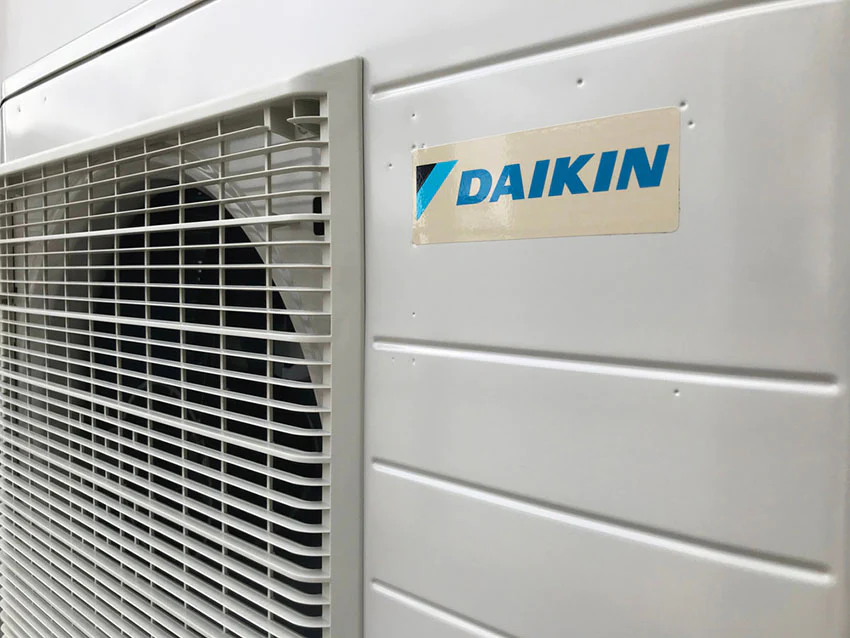Essential Tips for Choosing the Right HVAC System for Your Home
 Selecting the right HVAC system for your home is a decision that should never be underestimated. Beyond just regulating the indoor temperature, an efficient HVAC system plays a vital role in your family’s comfort and well-being.
Selecting the right HVAC system for your home is a decision that should never be underestimated. Beyond just regulating the indoor temperature, an efficient HVAC system plays a vital role in your family’s comfort and well-being.
With the right system in place, you can bid farewell to uneven temperatures, excessive energy consumption, and frequent breakdowns. Optimal comfort is not the only benefit, as choosing an energy-efficient HVAC system can lead to substantial cost savings on your monthly utility bills. In addition, by opting for an eco-friendly model, you contribute to a greener planet and do your part in preserving the environment for future generations.
But it’s not just about comfort and savings; it’s also about health. A well-designed HVAC system ensures improved indoor air quality by effectively filtering out pollutants and allergens, providing your loved ones with cleaner and safer air to breathe.
So, before you settle for just any HVAC system, invest time in research, consult with the experts at Jacobs and Rhodes, and make a choice that will enhance your home’s comfort, promote energy efficiency, and safeguard the health of your family.
Assess Your Home’s Heating and Cooling Needs
Assessing your home’s heating and cooling needs is the crucial first step in selecting the right HVAC system.
Understanding these requirements ensures that you invest in a system that perfectly matches the demands of your living space. Factors such as the size of your home, insulation levels, number of windows, and local climate play a significant role in determining the heating and cooling load.
A professional HVAC contractor can perform a detailed load calculation to precisely determine the ideal system size and capacity. Oversized systems may lead to short cycling, energy wastage, and inconsistent comfort, while undersized units will struggle to keep your home at the desired temperature, resulting in increased wear and tear on the system.
By accurately assessing your home’s heating and cooling needs, you lay the foundation for a highly efficient HVAC system that will not only deliver exceptional comfort but also contribute to long-term energy savings and reduced environmental impact.
The best part is there is no cost to you for this, a Jacobs and Rhodes Comfort Advisor will come to your home or business, perform an inspection, take required measurements, and provide you with an assessment and options to best fit your specific application.
Understand Different HVAC System Types
Understanding the various HVAC system types is essential when making an informed decision for your home. HVAC technology has evolved significantly over the years, offering a range of options to cater to different needs and preferences.
The most common types include split systems, packaged systems, ductless mini-split systems, and geothermal systems.
- Split Systems: Split HVAC systems consist of both indoor and outdoor units. The indoor unit houses the evaporator coil and the blower, while the outdoor unit contains the compressor and condenser. These systems are versatile and suitable for homes with existing ductwork. They offer excellent heating and cooling efficiency and are a popular choice for many homeowners.
- Packaged Systems: Unlike split systems, packaged HVAC systems house all the components in a single outdoor unit. This design is ideal for homes with limited indoor space or no available ductwork. Packaged systems come in different configurations, including air conditioner-only, heat pump, or a combination of both, providing a comprehensive solution for year-round comfort.
- Ductless Mini-Split Systems: Ductless mini-split systems are highly flexible and perfect for homes without ductwork. They consist of an outdoor unit connected to one or more indoor air handlers. These systems offer individualized climate control for different zones in your home, allowing for increased energy efficiency by only conditioning occupied spaces.
Knowing the strengths and limitations of each HVAC system type is crucial for selecting the one that best aligns with your specific needs, budget, and preferences.
Consulting with a knowledgeable HVAC professional like Jacobs and Rhodes can help you make an informed choice that will ensure optimal comfort and efficiency for years to come.
Importance of Energy-efficient HVAC Systems
The right HVAC system can be a game-changer, significantly improving both energy efficiency and comfort in your home. When properly sized and designed, an efficient HVAC system ensures that you enjoy a consistent and pleasant indoor environment all year round.
By matching the system’s capacity to your home’s specific heating and cooling needs, you avoid energy wastage associated with oversized or undersized units. This precise calibration allows the system to operate optimally, reducing energy consumption and subsequently lowering your utility bills – modern HVAC systems come with advanced features such as programmable thermostats and zoning capabilities, enabling you to customize temperature settings for different rooms or times of the day, further enhancing energy efficiency.
As a result, you no longer have to compromise on comfort to save on energy costs. Let Jacobs and Rhodes help you select the right HVAC system that strikes the perfect balance, creating an environment that keeps you cozy in the winter and cool in the summer, all while being mindful of energy usage and your wallet.
Look into HVAC System Features and Technology
In today’s technologically advanced world, HVAC systems come equipped with a variety of innovative features designed to enhance comfort and energy efficiency.
Programmable Thermostats
A prime example of such advancements. These smart devices allow you to set different temperature schedules for various times of the day, adjusting the heating and cooling based on your family’s routine. By programming your HVAC system to lower energy usage during periods when you’re away or asleep, you can save significantly on utility bills without compromising comfort.
Zone Control
Another fantastic feature worth considering, especially if you have a larger home or multiple floors. This system divides your home into different zones, each with its thermostat and independent control. With zone control, you can fine-tune the temperature in individual areas, eliminating hot or cold spots and further optimizing energy usage.
Variable-Speed Compressors
These are a game-changer when it comes to HVAC efficiency. Unlike traditional single-speed compressors that run at full capacity at all times, variable-speed compressors adjust their speed based on the current heating or cooling demands. This adaptability ensures that the system operates at the optimal level, consuming only the necessary amount of energy to maintain the desired indoor temperature. As a result, variable-speed compressors offer improved energy efficiency, reduced wear and tear on the system, and a quieter operation.
While the array of advanced HVAC features is impressive, it’s essential to consider which ones align with your specific needs and lifestyle. For instance, if you have a regular daily schedule, a programmable thermostat can provide substantial energy savings.
On the other hand, if you have varying daily routines or spend more time in specific areas of your home, zone control may be a better fit. It’s crucial to assess your family’s preferences, occupancy patterns, and budget to determine the features that will make a noticeable difference in your comfort and utility bills.
In conclusion, exploring the wide range of HVAC system features and technology is an exciting part of the selection process. By considering programmable thermostats, zone control, and energy-saving technologies like variable-speed compressors, you can customize your HVAC system to meet your unique requirements and achieve optimal energy efficiency. A well-chosen HVAC system with advanced features not only enhances your comfort but also contributes to a greener, more sustainable home.
Check for Rebates, Incentives, and Warranties
Rebates & Incentives
Before making your final decision on an HVAC system, take the time to research available rebates and incentives.
Many governments, utility companies, and even HVAC manufacturers offer financial incentives to encourage the adoption of energy-efficient systems. These incentives can significantly offset the initial cost of upgrading to a more efficient HVAC system.
Look into local, state, or federal energy efficiency programs that may provide rebates, tax credits, or other financial incentives for installing energy-saving HVAC equipment. Taking advantage of these opportunities not only helps you save money upfront but also contributes to a greener environment by promoting the adoption of eco-friendly technologies.
Warranties
When investing in an HVAC system, it’s essential to choose products that come with comprehensive warranties. A robust warranty provides you with peace of mind, knowing that the manufacturer stands behind the quality and performance of their equipment. In the event of any manufacturing defects or unexpected issues, a good warranty ensures that you can get the necessary repairs or replacements without incurring additional costs.
Before finalizing your purchase, thoroughly review the warranty terms, coverage period, and any conditions that may apply.
Additionally, consider extended warranties or maintenance plans offered by Jacobs and Rhodes, which can further protect your investment and provide regular maintenance to keep your system running efficiently.
Conclusion
Choosing the right HVAC system for your home is an investment that impacts your family’s comfort, energy efficiency, and overall well-being.
By assessing your home’s heating and cooling needs, understanding different HVAC system types, and exploring advanced features and technology, you can make a well-informed decision that aligns with your unique requirements.
Additionally, taking advantage of available rebates, incentives, and comprehensive warranties further enhances the value of your investment. So, take your time to research, consult with professionals, and prioritize both comfort and energy efficiency to create a home environment that ensures your family’s comfort, reduces energy costs, and contributes to a greener future.


 Jacobs and Rhodes
Jacobs and Rhodes